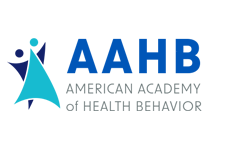Abstract
Morbidity and mortality from colorectal cancer can be decreased by addressing patient barriers to colorectal cancer screening; especially among adults who have never been screened. Assessing changes in barriers over time may help practitioners better tailor interventions to address patient barriers. We assessed among adults ages 50 -75 who have never been screened for colorectal cancer (CRC) which barriers predict prospective screening. A sample of 560 adults who had never been screened, recruited from Growth for Knowledge’s online panel, completed a baseline and a six-month follow-up survey. Both surveys assessed screening barriers after an online intervention that involved conveying tailored comparative risk estimates and message framing. Among those who did not get screened, we examined the consistency between reported barriers at baseline and at six-month follow-up. At baseline, participants identified 27 barriers; some reported no barriers. Among those never screened (n = 362), there was a significant increase from baseline to follow-up in five barriers: ‘time/too busy’, ‘no symptoms’, ‘in good health’, ‘no motivation’, and ‘hadn’t thought about it’. Reporting ‘no barriers’ at baseline was a significant predictor of being screened at follow-up (OR = 3.67, 95% CI = 1.44-9.30, p < .007). Among people who have never been screened, interventions should focus on addressing the most consistently reported barriers (i.e., ‘time/too busy’, and on improving knowledge and beliefs about who should be screened and when, as well as attitudes toward screening, to design more efficacious and tailored interventions.
Creative Commons License

This work is licensed under a Creative Commons Attribution-Noncommercial 4.0 License
Recommended Citation
Conley, Cherie; Dillard, Amanda J.; Johnson, Constance M.; Updegraff, John A.; Pan, Wei; Langenberg, Alyssa; and Lipkus, Isaac
(2019)
"Consistency of Reported Barriers for Colorectal Cancer Screening Among Adults Who Have Never Been Screened,"
Health Behavior Research:
Vol. 2:
No.
4.
https://doi.org/10.4148/2572-1836.1057
Additional Files
AAHB_apa_checklist_signed.docx (121 kB)APA checklist
Cherie_Conley_SummaryAbstract_04_30_2019.docx (12 kB)
Research Brief Summary




